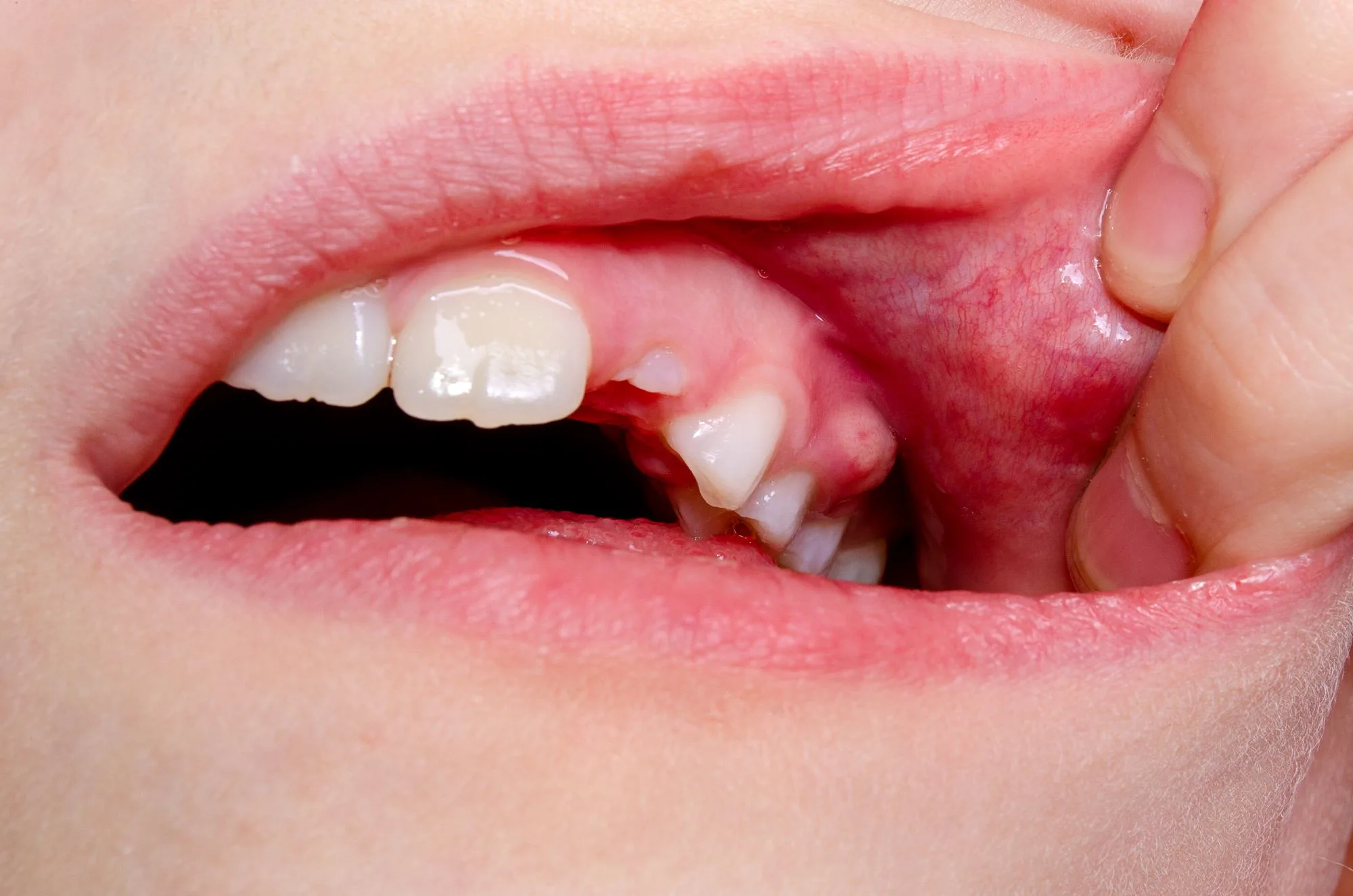
Gum Boil: Causes, Symptoms, and Treatments

This blog has been reviewed and approved by Francesca Dusio, an Italian registered Dentist with a strong international background.
Key Takeaways
- A gum boil is a type of dental abscess that presents as a swollen, puss-filled bump on your gums.
- Other symptoms you may notice include swelling, redness, bad breath, difficulty opening your mouth, and fever.
- Gum boils are most often caused by a bacterial infection in your gums or severe tooth decay in a nearby tooth. If left untreated, gum boils can spread bacteria to other areas of the body and cause severe infection.
- If you notice a gum boil, schedule an appointment with your dentist right away. You may need antibiotics to clear up the infection and prevent it from spreading.